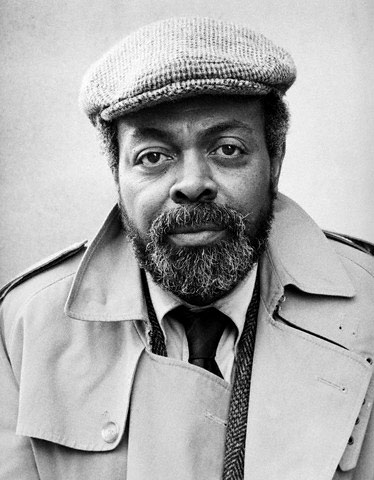
This week in Courtney Lewis's Poetry Class we read the poem "In Memory of Radio" by Amiri Baraka. In his poem Baraka talks about the death of radio, the uprising of the middle class, and the loss of imagination. In the poem, he uses many allusions that help him prove his point. He talks about "The Shadow," which was a character on a radio program. He says that "what evil lurks in the hearts of men, only the shadow knows." He uses his allusion to the shadow throughout the poem to allude to other things that show the death of imagination through the rise of the middle class. He says that while he was listening to the shadow everyone else was looking up to Broadway singer, and middle class hero Kate Smith. He alludes that as a society we have gone from priding ourselves on imagination to praising people who we aspire to be like. He says now we listen to televangelists, and we put linoleum in our living rooms. He uses references that people will easily recognize in order to exemplify that society has lost touch with our inner imaginations along with the rise of the middle class.
When I read this poem, the allusions reminded me of another poem that is filled with allusions: T.S. Eliot's "The Wasteland."
T.S. Eliot’s The Wasteland identifies the “thwarted fertility” existent in the world. Eliot specifically examines this “thwarted fertility” by specifically addressing fruitless love through a series of allusions throughout the poem. The section entitled “A Game of Chess,” describes a wealthy woman sitting in a “burnished throne” (77). The portrayal of the subject alludes to Queen Cleopatra and her first encounter with Marc Antony. The woman is fabulously wealthy because of the description of the “glitter of her jewels” (84), but her wealth cannot satisfy her because like Cleopatra her love has deserted her. Another pair of lovers Eliot describes is Queen Dido and Aeneas. One of the only direct mentions of their story references her funeral pyre. Like Cleopatra, Aeneas leaves Dido thus she commits suicide. Eliot also describes the love of Elizabeth and Leicester. Leicester is a reference to her lover Lord Robert Dudley, who was widely considered to be the only man Elizabeth would ever marry. She did not marry him because she was pressured not to for political reasons, and she was left alone only to see him marry another woman. Eliot writes The Waste Land in order to highlight the thwarted fertility in love by using examples of lovers whose relationships are unproductive rather than productive.

The three pairs of lovers Eliot writes about mirror the idea the poem presents about the infertility of nature. The conventional idea of love ideally involves the idea that a couple remains intimate for the rest of their lives and reproducing by having children. The Waste Land discredits the previously stated notion by providing numerous relationships that are destructive instead of productive. Eliot seems to suggest that most love is infertile because of the numerous examples of such occurrences. Cleopatra and Dido commit suicide, and Queen Elizabeth cannot marry because of political reason, and her lover leaves for another woman. None of the abandoned women in the story have children. In fact there is another story of a woman named Lil whose husband is in the war. Left alone and pregnant the woman has an abortion by taking a pill to “bring it off” (159). At the end of Lil’s story she repeats Ophelia’s farewell before her death of “Good night, ladies, good night, sweet ladies, good night, good night” (172). Lil’s repeating of Ophelia’s farewell seems to insinuate that Lil dies as well. These abandoned women’s deaths compare to the abandonment and the death of Eliot’s ex-wife, Vivienne Haigh-Wood Eliot. After she and Eliot’s divorce Vivienne refused to accept the end of the relationship, and she became panicky and depressed. She attempted to contact Eliot inappropriately, which revealed to him and others that she was clearly mentally ill. Eliot alludes to his wife’s mental illness in the poem when he says “‘what is that noise?’ ‘The wind under the door’ ‘What is that noise now? What is the wind doing?’ ‘Nothing again nothing’” (116-119). Eliot’s wife was institutionalized until her death in 1947. By writing this poem, Eliot professes his frustrations with the fruitless outcome of his own relationship as well as famous relationships throughout history.
The Waste Land’s theme of thwarted fertility deals with many different elements of nature, including the unproductive relationships of humans. Eliot uses examples of courtships throughout history as well as in his own life that have led to a lack of offspring, which defines a successful, healthy relationship. Most of these relationships became unproductive because the man abandoned the woman. Perhaps Eliot is suggesting that he is at fault for his wife’s mental illness by writing about the way women reacts when their lovers leave them.
Eliot's poem would not be as successful without his allusions to the different elements in literature. His powerful allusions help prove his point in these poems. Allusions can seriously be helpful in proving an abstract idea through the relation of things throughout culture and history. Baraka does this too, which really helps point out to the reader his point about the loss of imagination in culture through the rise of the middle class.
No comments:
Post a Comment